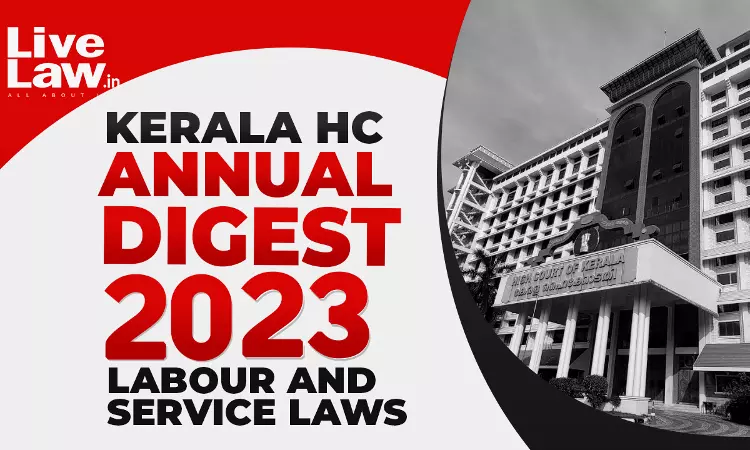Next Story
10 Jan 2024 9:00 AM IST
Pension Schemes Under KTWWF Act & Kerala Dairy Farmers' Welfare Fund Act Do Not Prohibit Membership Of Two Different Welfare Funds: Kerala High CourtCase Title: Sadanandan K.S. & Ors. v. Kerala Toddy Workers Welfare Fund Board & Ors.Citation: 2023 LiveLaw (Ker) 7The Kerala High Court held that availing of pension from the Scheme under Kerala Dairy Farmers' Welfare Fund Act, 2007...

